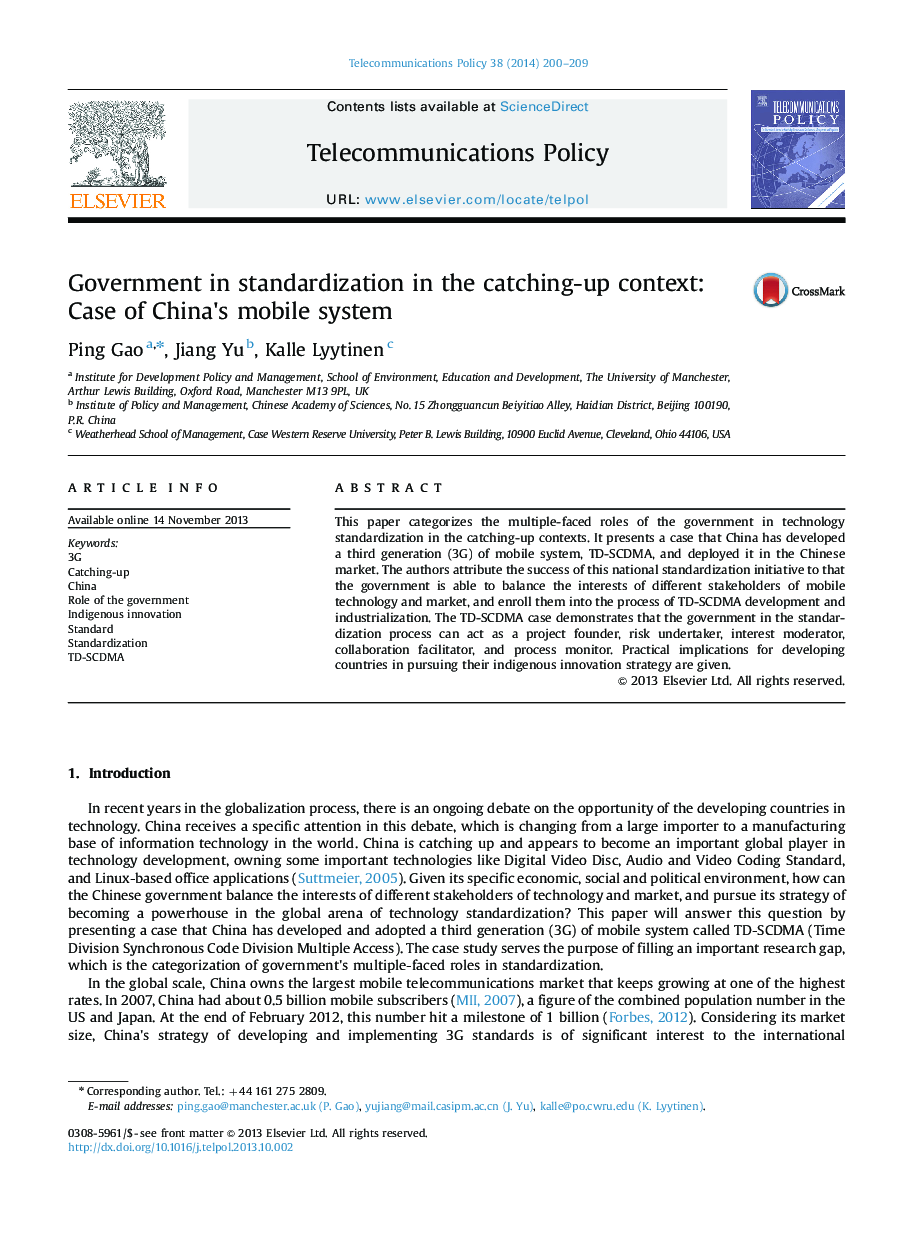| Article ID | Journal | Published Year | Pages | File Type |
|---|---|---|---|---|
| 559789 | Telecommunications Policy | 2014 | 10 Pages |
•We offer a case study of China's national initiative of TD-SCDMA standardization.•We use inductive reasoning method to generate some theoretical conclusions (one proposition) from the TD-SCDMA case.•We categorize the multiple-faced roles of government in standardization.•Practical implications for countries to intervene in their innovation initiatives are given.
This paper categorizes the multiple-faced roles of the government in technology standardization in the catching-up contexts. It presents a case that China has developed a third generation (3G) of mobile system, TD-SCDMA, and deployed it in the Chinese market. The authors attribute the success of this national standardization initiative to that the government is able to balance the interests of different stakeholders of mobile technology and market, and enroll them into the process of TD-SCDMA development and industrialization. The TD-SCDMA case demonstrates that the government in the standardization process can act as a project founder, risk undertaker, interest moderator, collaboration facilitator, and process monitor. Practical implications for developing countries in pursuing their indigenous innovation strategy are given.
